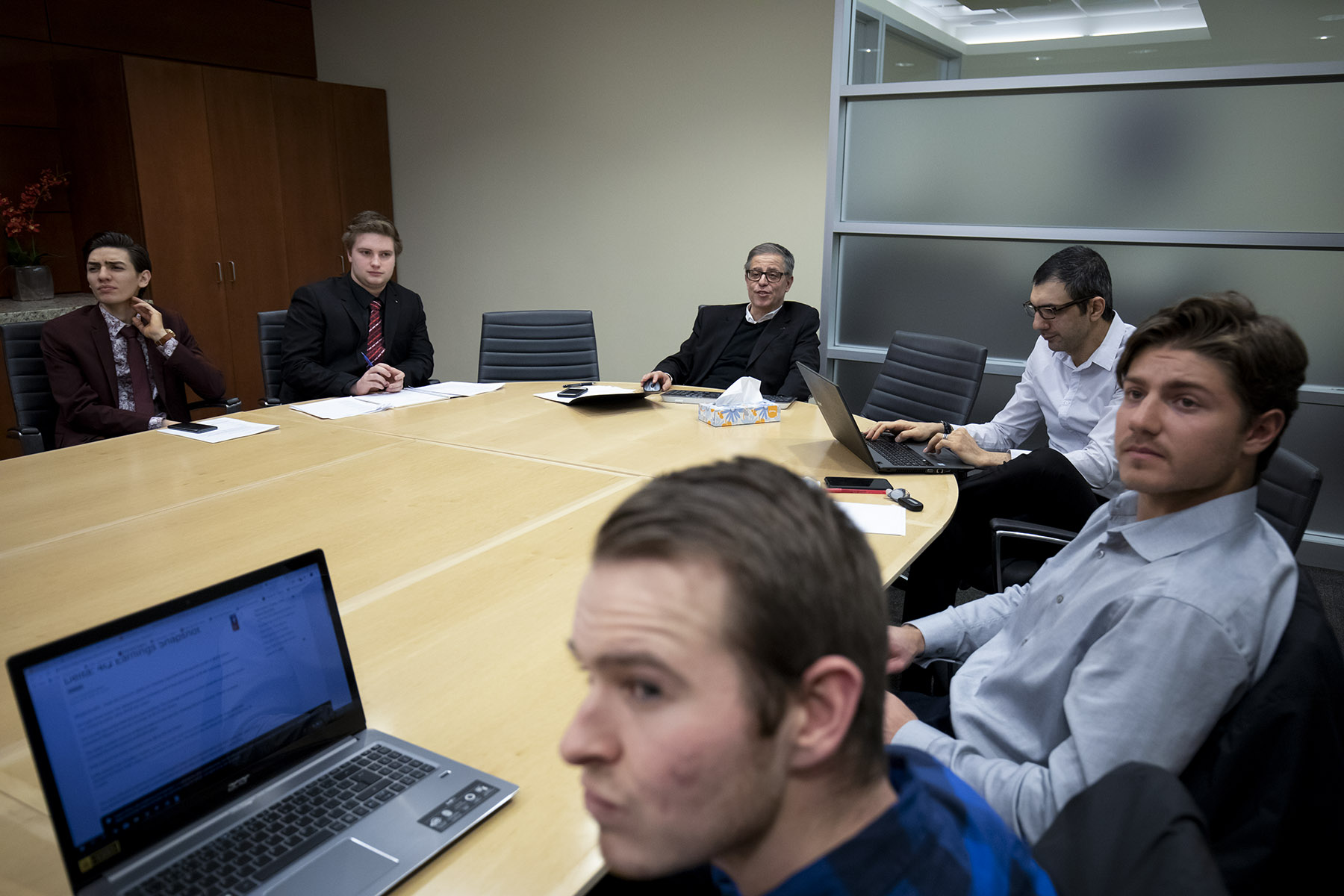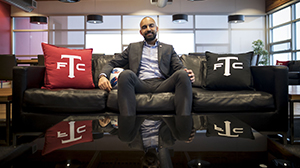- Future Students
- Current Students
- Faculty
- Staff
- Alumni
- Others
Virtual Hedge Fund: A great investment for UofGH students

This fall, a group of six University of Guelph-Humber Business students became the first ever Portfolio Managers for UofGH’s Virtual Hedge Fund, where they have invested $1 million in virtual money.
The Virtual Hedge Fund was created by Dr. George Bragues, Assistant Vice-Provost and Business Program Head, who had read articles about post-secondary students managing similar hedge funds with real money. While researching the idea, he learned that students at the University of Guelph were also doing this, but had started out by investing with virtual money.
“I thought that would be a good route to go for the University of Guelph-Humber, to start off with a virtual hedge fund, and then build up a track record and make the information public by having a website where we publicize our performance every month,” he says. “The ultimate goal is to work with real money that the students can manage.”
Six third- and fourth-year Business students were selected in fall 2018 to be Portfolio Managers for the virtual fund. The team meets once a week, along with faculty advisors Professors George Bragues and Alireza Talebi. As the first Virtual Hedge Fund team at UofGH, the students spent time developing an investment policy that created the guidelines for both the current and future teams—including how the fund is run, how decisions are made, how student portfolio managers get selected, the role of faculty advisors, and the investment strategy.
Bringing classroom learning to life
Dr. Bragues says students gain practical experience, learn to work as a team, and acquire presentation, persuasion, and critical thinking skills. In addition, all investing decisions must be made as a team. “Students are regularly interacting with the markets and following them on a day-to-day basis, so they become immersed in it and get that experiential learning,” he says.
“My experience has been nothing but good,” says fourth-year Business student Gregory Ford. “It lets students be involved with each other, network, and learn from not only each other but the two faculty advisors. We have good conversations, present our findings, and vote on how we construct our portfolio. Every week there is something new to talk about!”
Third-year Business student William Houghton says becoming a Portfolio Advisor has been helping him to achieve both his personal and career goals. “In the future I plan to have a career that deals with portfolio management to some extent, so the opportunity to gain hands-on experience was quite appealing to me,” he says. “In addition, the growth of my professional network, the expansion of my resume, and the hands-on experience gained from being on this team will all play a part in helping me to reach my future employment goals.”
He says he has personally become confident enough to start investing his own money. “Time is an incredibly important part of investing, and by beginning investing now, I have increased my time horizon for investing throughout my lifetime.”
“It’s about getting that experience,” adds Ford. “Adding something to your resume all while having a good time doing it. This investment club will be something I mention on my resume, and that I will be able to talk about to my future employers.”
Michael Longato, fourth-year Business student, agrees. He says he has benefitted from being part of the team, gaining experience, and applying his classroom learning. “The experience has been amazing—every weekly meeting we are evaluating the portfolio, discussing what is happening in the market, and analyzing a number of companies that we see fit to add to the portfolio to satisfy the growth style investing,” he says. “I have gained knowledge of analyzing investment opportunities, and deciding the composition of the portfolio; but most importantly, I’ve benefitted from working as a team to achieve the goals that were set out.”
Building on a solid foundation
Recruiting will begin soon for the next group of Portfolio Managers. “It is a great way to get involved, meet other students, and network with business professionals while experiencing real life portfolio analysis,” says Longato. “You don’t have to be in finance to get involved in the virtual hedge fund; it is open for all Business students, and a great way to learn about personal investing in the future as well.”
Dr. Bragues says that he estimates it will be a couple of years before UofGH students begin working with real money, which is the ultimate goal. However, he says working with virtual money hasn’t dampened the students’ enthusiasm or commitment. “The fact that we’re working with virtual money hasn’t reduced the commitment and seriousness with which the students have taken on the task of acting as portfolio managers,” says Dr. Bragues. “This is a great experience for students. For any student out there who has a desire to pursue a career in the financial markets, you should definitely consider this, and apply.”







